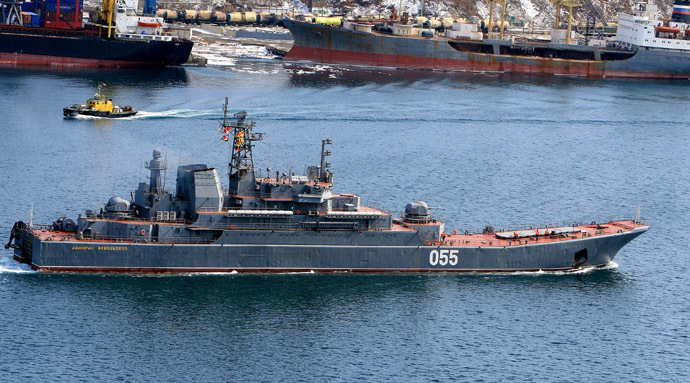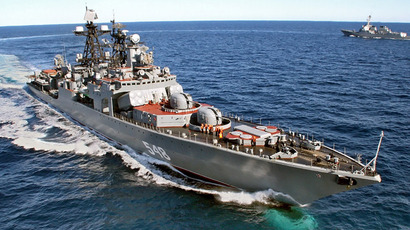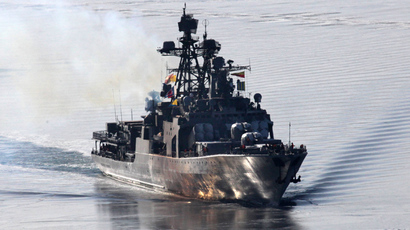Russia’s ‘carrier-killer’ Moskva enters Mediterranean
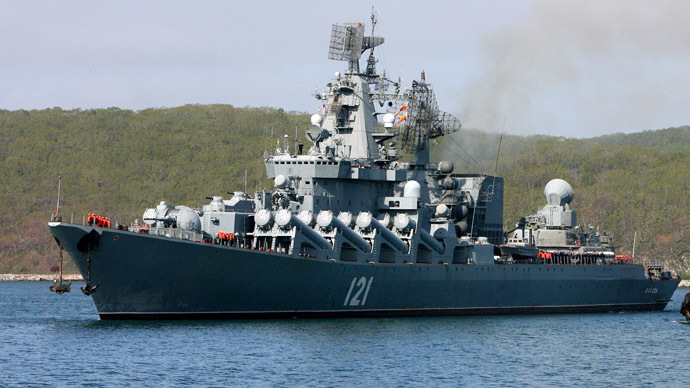
Russia’s Moskva missile cruiser, dubbed a “carrier-killer” by NATO, has passed through the Straits of Gibraltar and is now heading toward the eastern Mediterranean to assume command of the Russian naval force there.
The Russian Navy said in a statement that the Moskva cruiser passed through the Straits of Gibraltar on September 10.
Interfax news agency added that the Moskva cruiser, “commanded by Sergey Tronev, Captain 1st Rank of the Guards… has enough room for maneuver now.”
“The Black Sea flagship entered the Russian Navy's area of responsibility in the Mediterranean at 11:00 pm Moscow time yesterday," the agency reported a military source as saying.
The missile-carrying cruiser is expected to join its final destination in eastern Mediterranean on September 15 or 16.
Upon arrival, the command of the Russian Navy unit in the Mediterranean, currently stationed onboard the Admiral Panteleyev anti-submarine ship, will be relocated to the Moskva.
"The armaments and technical equipment of the missile cruiser are in working condition. The crew is ready to perform combat missions,” the source said.
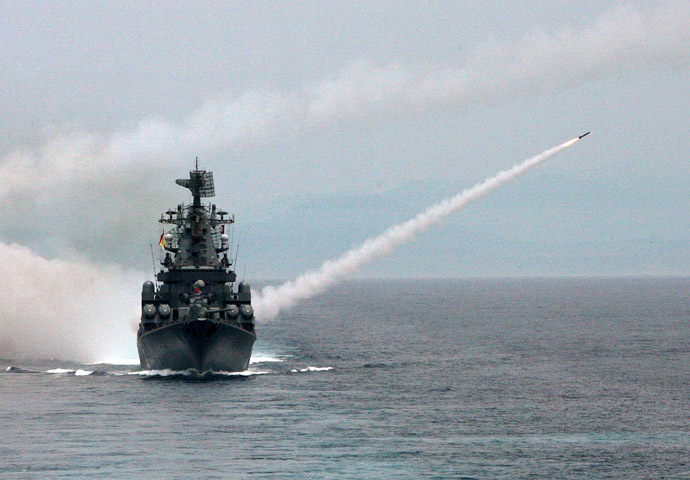
The missile cruiser, initially known to Western naval intelligence as “Slava” (Glory), was launched in 1979 and entered service in 1983. It was later renamed the “Moskva” in 1995. Designed to be carrier-killers, the cruisers of Class 1164 are equipped with 16 anti-ship launchers P-1000 Vulkan, or Volcano (SS-N-12 Sandbox anti-ship missiles, according to NATO classification).
‘Moskva’ weaponry
-16x SS-N-12 Sandbox anti-ship missiles
- 8x8 (64) S-300PMU Favorit (SA-N-6 Grumble) long-range surface-to-air missiles
-2x20 (40) OSA-MA (SA-N-4 Gecko) SR SAM
-1x twin AK-130 130mm/L70 dual-purpose guns
-6xAK-630 close-in weapons systems
-2x RBU-6000 anti-submarine mortars
-10x (2 quin) 533mm torpedo tubes
Armor: Splinter plating
Aircraft carried: 1 Ka-25 or Ka-27 helicopter
Another two vessels, the landing ship Nikolay Filchenkov and the guard ship Smetlivy, will join the Russian naval unit later. They will be pass through the Bosporus and Dardanelles straits by September 12-14 and will then head to the eastern Mediterranean.
Russia’s Defense Ministry has said the maneuvers are part of the “stage-by-stage rotation of warships and support ships of the standing naval force in the Mediterranean.”
The recent deployments are aimed at “complex monitoring” of the situation around Syria, military sources told Interfax earlier.
Russia’s standing naval force in the Mediterranean now involves landing craft carriers “Aleksandr Shabalin,” “Admiral Nevelskoy,” “Peresvet,” “Novocherkassk” and “Minsk” of Russia’s Black and Baltic Sea Fleets, as well as escort vessel “Neustrashimy,” and the anti-submarine ship “Admiral Panteleyev.”
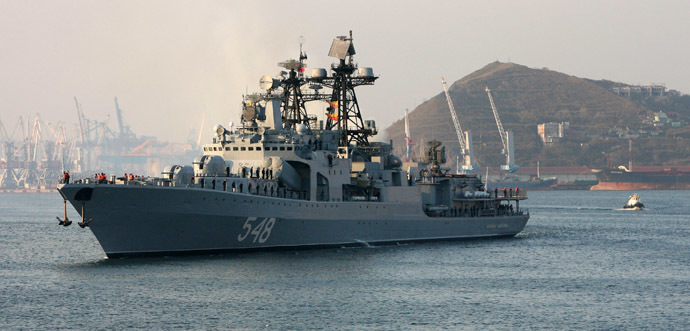
Russian naval maneuvers in the Mediterranean come amid growing tension in the region, which sparked speculation that Russia was boosting its naval presence ahead of a possible US strike against Syria.
Previously, Russia’s defense officials cautioned against making connections between the relocation of warships and the Syrian crisis, saying the maneuvers do not depend on the situation and “will continue after it.”
